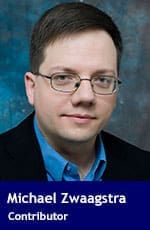 In 1933, the retiring president of Harvard University, Lawrence Lowell, famously stated that his university’s school of education was “a kitten that ought to be drowned.”
In 1933, the retiring president of Harvard University, Lawrence Lowell, famously stated that his university’s school of education was “a kitten that ought to be drowned.”
Of course, university presidents wouldn’t talk like this today. But Lowell was far from the only scholar to hold education schools in such low repute – and for good reason. In 1954, Time magazine reflected the prevailing sentiment when it dubbed New York’s 120th Street, which separated Columbia Teachers’ College from Columbia University, as “the widest street in the world.”
Generally speaking, academics held education schools in low repute because these schools promoted progressive educational theories that de-emphasized traditional academic content. Nowhere was this more evident than at Columbia Teachers’ College, where John Dewey and his disciple William Heard Kilpatrick promoted a child-centred educational approach where factual knowledge took a backseat to fads such as “project-based learning.”
Fast forward to 2019 and things haven’t changed much. Education schools continue to downplay subject-specific knowledge and promote many of the same fads, albeit under new names.
Today’s education students are fed useless platitudes such as the need to be a “guide on the side rather than a sage on the stage.”
Instead of empowering future teachers with the confidence they need to effectively manage their classrooms, education professors promote theories that have little practical use in actual classrooms with real students.
One of the most common sentiments expressed by classroom teachers is that their education classes taught them little about how to teach. They give high praise to their teaching practicums, where they spend time in real classrooms, but quickly follow this up with a comment about how useless they found their education classes.
Imagine what would happen if other groups of professionals – such as lawyers, doctors or dentists – regularly expressed such disdain for their training programs. Governments would initiate a major review of these professional schools to find out the problem.
However, because no one has the courage to step in and make major changes, education schools continue offering mediocre – or worse – programs. Thus, the cycle continues.
There is a better way. While education schools often tilt from one useless fad to another, there is a defined body of research regarding what methods work best in the classroom.
For example, research clearly shows that, when it comes to learning how to read, phonics is far superior to whole language. Dr. Jeanne Chall, the former director of the Harvard Reading Laboratory, demonstrated the superiority of phonics in the 1960s. It’s unfortunate that many education schools ignore the overwhelming evidence for phonics and continue to push whole language methodologies onto student-teachers.
Fortunately, some teachers are taking matters into their own hands.
In 2013, British teacher Tom Bennett organized the first researchED conference in London, England. This event generated so much teacher interest that it quickly became a worldwide phenomenon, with conferences in dozens of countries. Three researchED conferences have taken place in Canada, two in Toronto and one in Vancouver.
ResearchEd is different from typical teacher professional development because it’s entirely teacher-directed and gives teachers an opportunity to directly engage with the research literature. In contrast with the ideological conformity expected at education schools, researchEd presenters come from a variety of perspectives and disciplines and teachers can make up their own minds regarding what they hear.
Australian teacher Greg Ashman, who is pursuing a PhD in instructional design, is a regular researchEd presenter. His new book, The Truth About Teaching: An Evidence-Informed Guide for New Teachers, is vastly superior to any textbook used in education schools. As a case in point, Ashman recognizes the value of whole-class instruction led by the teacher and provides useful strategies for classroom management.
Ashman also exposes teachers to cognitive load theory, something all teachers need to understand. Cognitive load theory notes that working memory is limited and that basic information must be transferred to long-term memory in order to free up space in the brain for more complex problems.
This is why the memorization of math facts, such as the times tables, is very important. Committing these facts to memory makes it possible for students to tackle more advanced math concepts.
It’s unfortunate that prospective teachers typically learn next to nothing about cognitive load theory in education schools.
If education schools want a better reputation, they need to become less ideological and more evidence-focused.
This would reduce the vast gulf between education schools and other university departments. But for now, the gulf between faculties of education and other disciplines is still “the widest street” on university campuses.
Michael Zwaagstra is a public high school teacher.
The views, opinions and positions expressed by columnists and contributors are the author’s alone. They do not inherently or expressly reflect the views, opinions and/or positions of our publication.


